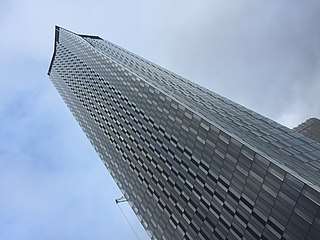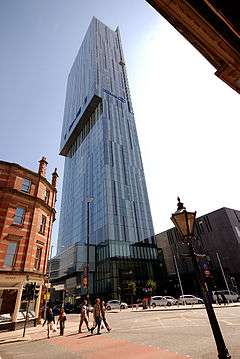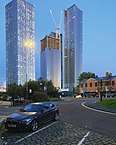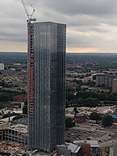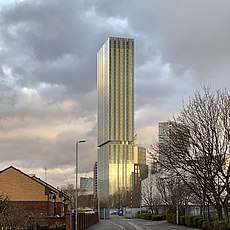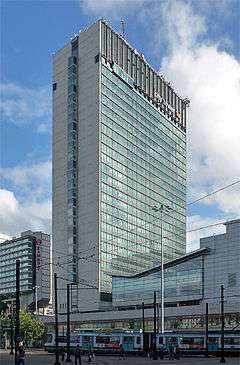Memorial Hall, Manchester
Memorial Hall in Albert Square, Manchester, England, was constructed in 1863–1866 by Thomas Worthington.[1] It was built to commemorate the bicentennial anniversary of the 1662 Act of Uniformity, when the secession of some 2,000 Anglican clergy led to the birth of Nonconformism[1] It is a Grade II* listed building as of 14 February 1972.[2]
The style is Venetian Gothic, inspired by such buildings as the Ca' d'Oro, with fine stone tracery on all windows and a palatial exterior. Worthington designed the building after his second tour of Italy in 1858.[1] The detailing is fine and "the subtlety of the polychromy (was) achieved by careful choice of materials".[3]
The hall provided a meeting place in the late 19th century for a host of Victorian societies, such as the Photographic, Statistical, Horticultural, Elocutionists and Positivists Societies. Other groups which used the building included the Home Missionary Board, Sir Charles Hallé’s choir and the Manchester Unitarian Sunday School Union. The ground floor and basement were let to provide an income for the maintenance of the hall.[3]
See also
- Grade II* listed buildings in Greater Manchester
- Listed buildings in Manchester-M2
- Congregational Memorial Hall — the Memorial Hall in London
Notes
- Hartwell/Hyde/Pevsner 2004, p. 305.
- Good Stuff. "Memorial Hall, City Centre, Manchester". Britishlistedbuildings.co.uk. Retrieved 2017-04-15.
- Hartwell 2001, p. 142.
References
- Hartwell, Clare; Hyde, Matthew; Pevsner, Nikolaus (2004). Lancashire: Manchester and the South East. The Buildings of England. New Haven, CT; London: Yale University Press. ISBN 0-300-10583-5.
- Hartwell, Clare (2001). Manchester. Pevsner Architectural Guides. London: Penguin. ISBN 0-14-071131-7.
